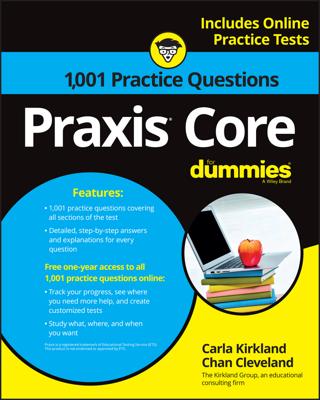You will need to be able to use prepositions for the Praxis Core exam. So what is a preposition? It’s a word that provides information about the relationship of words to each other in time and space: before and after are prepositions, for example, as are over and under.
The “time and space” rule is not absolute, however. About is one example of a preposition that does not relate to relationships in time and space, as in “The movie was about skateboarders.” Oh, and be aware that about can also be an adverb meaning approximately, as in “The movie was about two hours long.”
There are too many prepositions for you to simply memorize all of them, but a handy, short list includes the following: aboard, about, above, around, at, before, behind, below, beneath, beside, between, beyond, but (when used like except, as in “I want everything but anchovies on the pizza”; the rest of the time, it’s a conjunction).
Others include by, down, during, except, for, from, in, inside, into, like (used to mean similarly to or such as, as in “He looks like my cousin” or “Some countries, like Switzerland, are landlocked”), near ,of, off, on, over, past, since (used to signify the last time something occurred, as in “I haven’t seen him since Monday”), through, throughout, to, towards, under, underneath, until, up, upon, with, within, and without.
Many people find it helpful to refer to prepositions as “squirrel words,” meaning that they represent things a squirrel can do: The squirrel ran around the room; the squirrel ran under the table; the squirrel jumped over the chair; the squirrel crawled inside my desk; the squirrel ran down the hallway, past the water fountain, and through the door; and so on.
Most preposition-related questions on the Praxis writing exam involve determining whether the pronoun should be in the subjective or objective case. The only other common type of preposition question on the Praxis concerns preposition selection itself. Occasionally, a “no error” question will have a preposition underlined by itself, and you’re expected to know whether the preposition is being used correctly in that context or whether another preposition would be better.
Consider these examples:
Correct: “I’m obsessed with grammar.”
Incorrect: “I’m obsessed on grammar.”
Correct: “The movie was based on the book.”
Incorrect: “The movie was based about the book.”
So whenever you see a preposition underlined by itself on a “no error” question, make sure it’s the best one to use in that context. Unfortunately, preposition usage in English is largely idiomatic, which is the fancy word for “you say it that way because you just do.”
Think about it: Why do you say “in the morning” but “at night?” or “get in the car” but “get on the plane?” You just do.
Many prepositions also function as other parts of speech, so the presence of a word that, in some instances, can be a preposition doesn’t necessarily mean that the pronoun following it should be in the objective case. (Compare “I get to use the bike after him,” in which after is a preposition, to “After he is done using it, I get the bike,” in which after is a subordinating conjunction.)
As mentioned earlier, but and since are two more words that can be either prepositions or conjunctions, and the incredibly versatile word like can actually function as any part of speech except a pronoun!
If you want to memorize many of the most common prepositions, do an Internet search for “prepositions Jingle Bells.” There’s a song setting a list of prepositions to the tune of “Jingle Bells” that’s incredibly helpful and quite easy to memorize.

